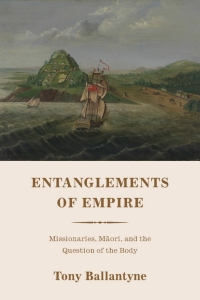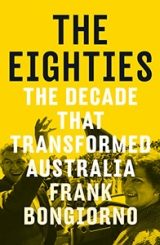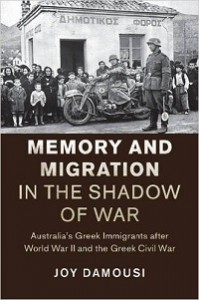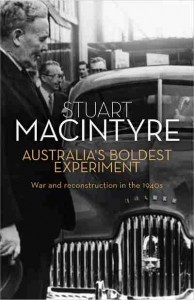2016 Ernest Scott Prize Shortlist Announced
We are excited to announce the following publications have been short-listed for the 2016 Ernest Scott Prize. The Ernest Scott Prize is awarded to work based upon original research which is, in the opinion of the examiners, the most distinguished contribution to the history of Australia or New Zealand or to the history of colonisation. This prize is proudly supported by the History Program in the School of Historical and Philosophical Studies, Faculty of Arts at The University of Melbourne.
We are excited to announce the following publications have been short-listed for the 2016 Ernest Scott Prize. The Ernest Scott Prize is awarded to work based upon original research which is, in the opinion of the examiners, the most distinguished contribution to the history of Australia or New Zealand or to the history of colonisation. This prize is proudly supported by the History Program in the School of Historical and Philosophical Studies, Faculty of Arts at The University of Melbourne.
The prize is worth approximately $13,000.
The judges for 2016 are Professor Giselle Byrnes (Massey University, New Zealand) and Professor Nicholas Brown (Australian National University, Canberra).
Read the judges’ citations below.
The winner will be announced on Tuesday 26 April, 2016 at the Kathleen Fitzpatrick Lecture (University of Melbourne).
Learn more about the Ernest Scott Prize.

Tony Ballantyne, Entanglements of Empire (Auckland University Press, 2015)
Entanglements of Empire is a smart, engaging and intelligent new work, which carefully blends New Zealand historical research with new theoretical readings inspired by international scholarship. Pushing disciplinary boundaries, its novel approach in reading the early Missionary-Maori dynamic in a new light, makes this book a new spin on an ‘old’ topic. Employing new frames of reference, guided by a focus on spatial interaction and physical embodiment, this book will invite further re-readings of the early colonial encounter period in New Zealand. Elegantly written, grounded in solid primary research, Entanglements of Empire is focused on re-thinking the history of early colonial New Zealand.

Frank Bongiorno, The Eighties: The Decade that Transformed Australia (Black Inc. 2015)
This is a book of impressive range and judgement, and marks a fresh path for political history in Australia. Bongiorno moves deftly between broad themes of political transformation and an evocation of specific moments, personalities, styles, scandals and symbols. A tight political narrative is illuminated by passages of delicate observation and contrast. While the focus of his account is on the particularities of a decade, Bongiorno draws on a breadth of perspectives to underscore the significance of change and continuity. The synthesis that informs his account encompasses all areas of cultural production, celebrity, sport, sexuality and personal relationships, commentary and consumption, ceremony and emotion, always seeking connecting themes rather than imposing interpretations. This fusion of social, cultural and political history is a distinctively Australian contribution to ‘big histories’ that combine accessibility and scholarship.

Joy Damousi, Memory and Migration in the Shadow of War (Cambridge University Press, 2015)
This book makes a vital contribution to re-energising the history of immigration in Australia, insisting on the multiple layers of politics in immigration and resettlement processes. Damousi explores the ways in which the conflicts of World War II not only shadowed the post-war immigration of Greeks but were actively lived long after their arrival. Oral histories are handled with a sensitivity to the gendered and generational dimensions of testimony and memory, and balanced by a fresh analysis of assimilationist advocacy, of the national and international institutional frameworks for Australia’s immigration program, and of the familial and community relationships. ‘Origins’ and ‘destinations’ are kept in a constant dialogue in this account, which also offers critical reflection on issues of historical judgement and method. Memory and Migration highlights the extent to which the trauma arising from displacement, war and political struggle must be incorporated into understandings of Australia as a nation of immigrants.

Stuart Macintyre, Australia’s Boldest Experiment: War and Reconstruction in the 1940s (NewSouth Publishing, 2015)
Stuart Macintyre’s account of Australia’s engagement with the prospects of post-war reconstruction through the 1940s is masterful in coverage and assured in narrative. An account of complex policy formulation and political debates, the book remains driven by a close attention to the personal investments in, and experience of, the profound uncertainties of wartime and unprecedented opportunities to address entrenched social and economic concerns. Rising above the polarity of ‘ideals vs pragmatism’, Macintyre evokes a nation and a diverse corps of people – politicians, officials, business and community leaders, academics, populists among them – that would be tested by those prospects for reform as much as they would embrace or debate them. The central theme of leadership running through this book is treated with admirable subtlety and balance. That approach, in addition to comprehensive account of the times, will be among the enduring contributions of Australia’s Boldest Experiment.

Julia Martinez and Adrian Vickers, The Pearl Frontier: Indonesian Labor and Indigenous Encounters in Australia’s Northern Trading Network (University of Hawaii Press, 2015)
A beautifully written and comprehensively researched new history, this book throws light on the complex and little-known transnational labour networks across and around northern Australia in the late nineteenth and early twentieth centuries. Arguing that Indonesian-Indigenous labour was critical to the survival of the lucrative pearl industry, The Pearl Frontier traverses cross-national boundaries, showing that the success of the network was premised on solid labour systems, risky endeavour and the constant negotiation of cultural spaces. The book demonstrates that this frontier zone was fluid and dynamic, while challenging assumptions around notions of impermeable labour markets. This approach not only opens up new fields of study, but also ruptures our reliance on constructs like ‘nation’ and invites further re-readings of this porous and fluid encounter zone in a dynamic and under-studied part of Australian history.
The winner will be announced on Tuesday 26 April, 2016 at the Kathleen Fitzpatrick Lecture (University of Melbourne).
Congratulations to all of the short-listed authors.